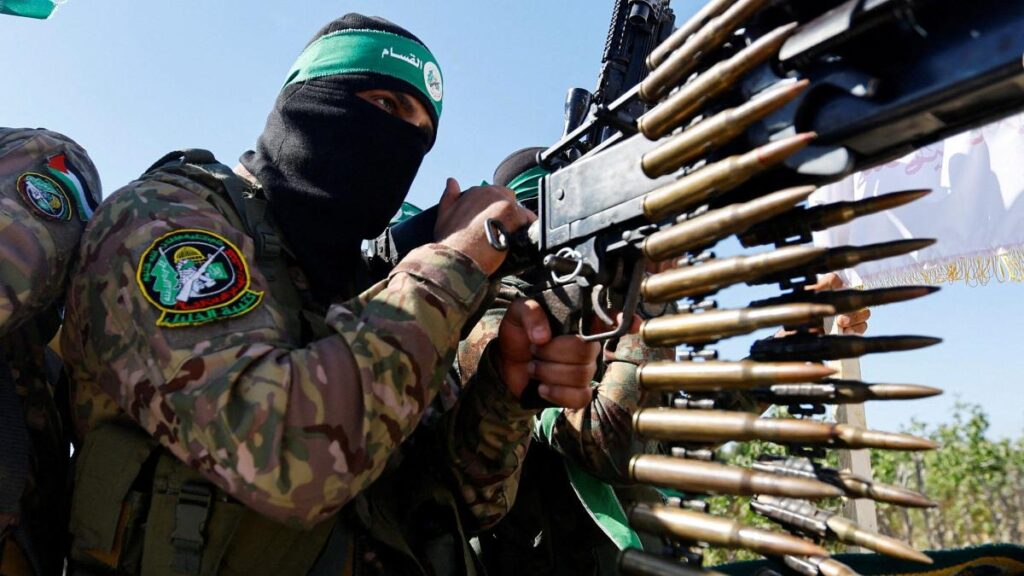On October 7, 2023, Hamas launched a significant and controversial attack on Israel, which quickly escalated into a harsh conflict that has seen vast destruction and loss of life, particularly in Gaza. In the wake of this event, Professor Dr. Salman al-Dayah, a distinguished Islamic scholar and former dean at the Islamic University of Gaza, issued a notable fatwa condemning the attack. This fatwa holds considerable weight within Gaza’s predominantly Sunni Muslim population, as Dr. Dayah is regarded as one of the most respected religious figures in the region. The fatwa serves as a pivotal legal and moral critique of Hamas’s actions, rooted in Islamic principles that govern the conduct of jihad, the Arabic term for “struggle,” which encompasses both personal spiritual endeavors and military actions.
In his six-page fatwa, Dr. Dayah argues that the principles governing jihad were not upheld by Hamas during the October 7 attacks, which led to the death of approximately 1,200 people and the taking of 251 hostages in southern Israel. He asserts that the essence and conditions of jihad necessitate a careful consideration that avoids causing unnecessary suffering or destruction of innocent lives. According to Dr. Dayah, the high civilian casualties in Gaza, along with the extensive damage to infrastructure resulting from Israel’s subsequent military operations, grossly contradict Islam’s teachings and showcase a failure on Hamas’s part to protect non-combatants. The fatwa emphasizes the necessity for military actions to be proportionate and justified, reinforcing the moral responsibility to avoid provoking significant retaliatory measures.
Hamas’s traditional justification for its attacks has often been framed within a religious context, using religious rhetoric to garner support from the broader Arab and Muslim communities. Thus, Dr. Dayah’s condemnatory fatwa poses a considerable challenge to the group’s narrative at a time when the humanitarian crisis in Gaza has deepened significantly following the war. With Israel conducting its military operations that reportedly have resulted in over 43,400 deaths in Gaza, Dr. Dayah’s pronouncement critically highlights Hamas’s obligations to ensure the safety and well-being of Palestinian civilians during conflict, urging them to maintain security and provide essential needs, such as food and medical care, for those affected by warfare.
Equally notable is Dr. Dayah’s broader stance against the extremism represented by Hamas and other militant groups such as the Islamic State and al-Qaeda. His interpretation of Islam aligns more closely with moderate Salafist beliefs, advocating for an Islamic governance model that is devoid of political party divisions. This is a significant divergence from Hamas’s style of governance, illustrating a more traditional and unified vision of Islamic leadership based on the teachings of the Prophet Muhammad, rather than fragmented political factions. His argument that human life is more sacred than even the holy city of Mecca reinforces his perspective on the value of life and welfare over militant ambitions, further positioning him as a critical voice in the discourse on armed resistance within Palestinian society.
Dr. Dayah’s fatwa arrives against a backdrop of growing internal dissent regarding Hamas’s strategies and its implications for Gaza’s civilian population. His position is not just an isolated critique but reflects a broader debate within Gaza and the Arab world concerning the ethical and legal justifications for armed struggle against Israel. The fatwa is likely to deepen divisions within Palestinian society, particularly among those who support armed resistance against the backdrop of enduring occupation versus those advocating for more peaceful and lawful approaches to the conflict. It thus amplifies discussions about the moral implications of actions taken in the name of resistance and the social responsibilities that come with militant engagements.
Concluding, Dr. Dayah’s courageous stand not only marks a significant moment in the religious and political landscape of Gaza but also underscores the evolving nature of Islamic discourse on violence and conflict. His refusal to leave his home in northern Gaza amid fears of aerial bombardment speaks to his commitment to addressing pressing social and political issues through the lens of Islamic jurisprudence. His student, Sheikh Ashraf Ahmed, emphasized the fatwa’s relevance as a crucial moment in legal scholarship, cementing Dr. Dayah’s role as a thought leader capable of influencing the trajectory of discourse surrounding jihad, resistance, and the ethical responsibilities for one’s community during turbulent times. This pivotal moment in Gaza’s history may catalyze further reflections on the direction of Palestinian resistance and the balance between political ambitions and humanitarian considerations.

